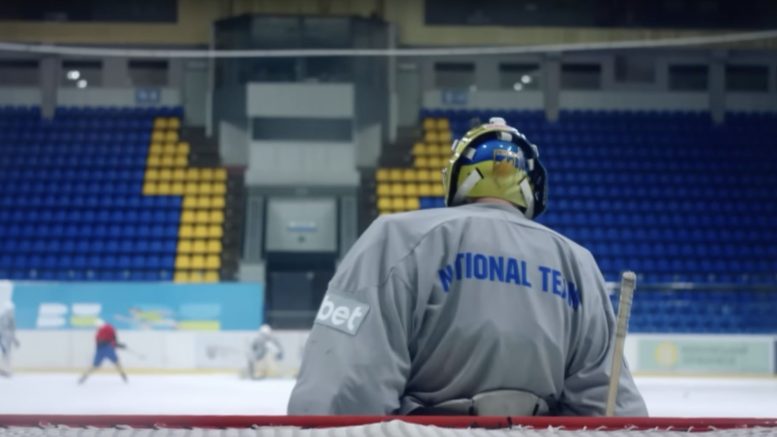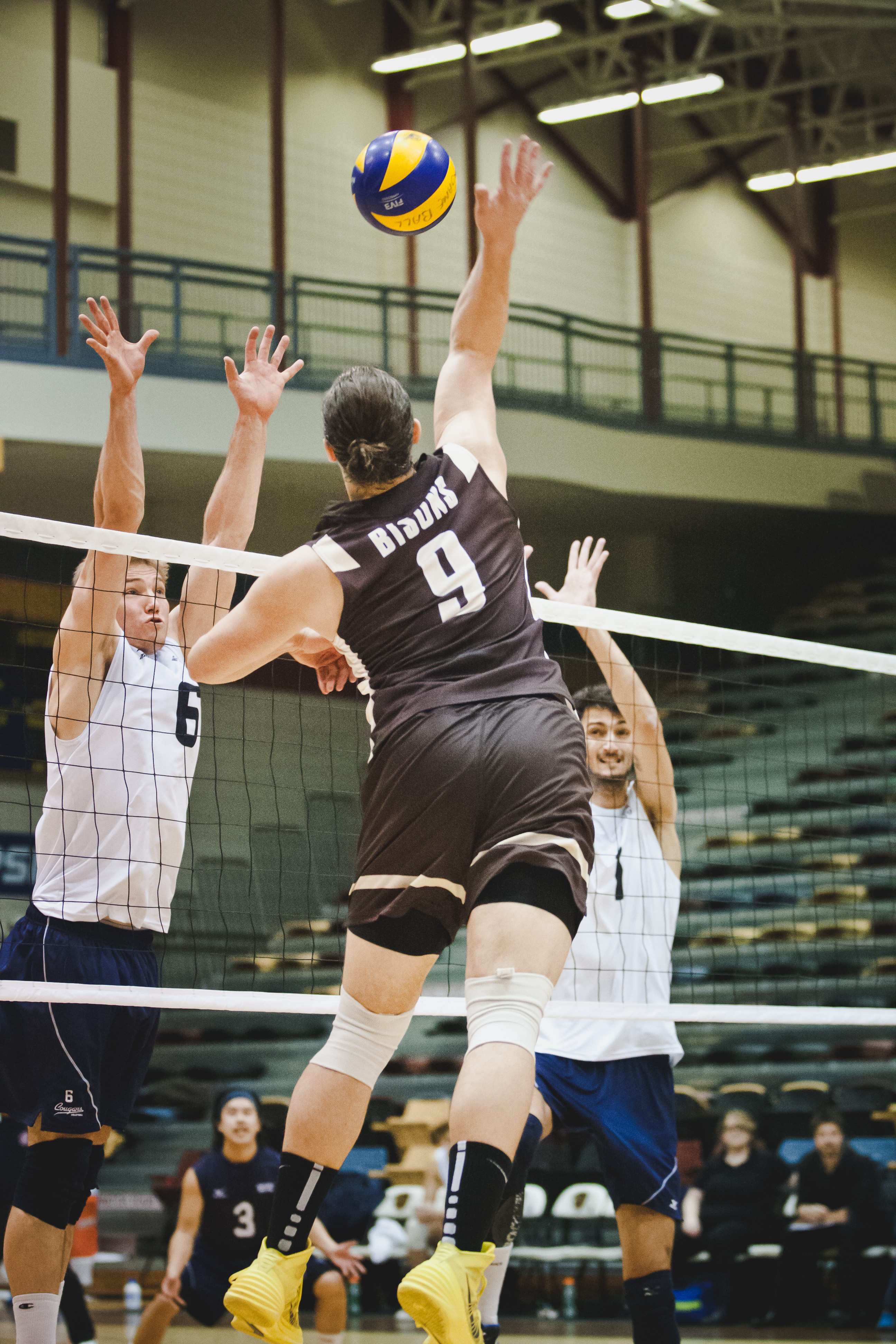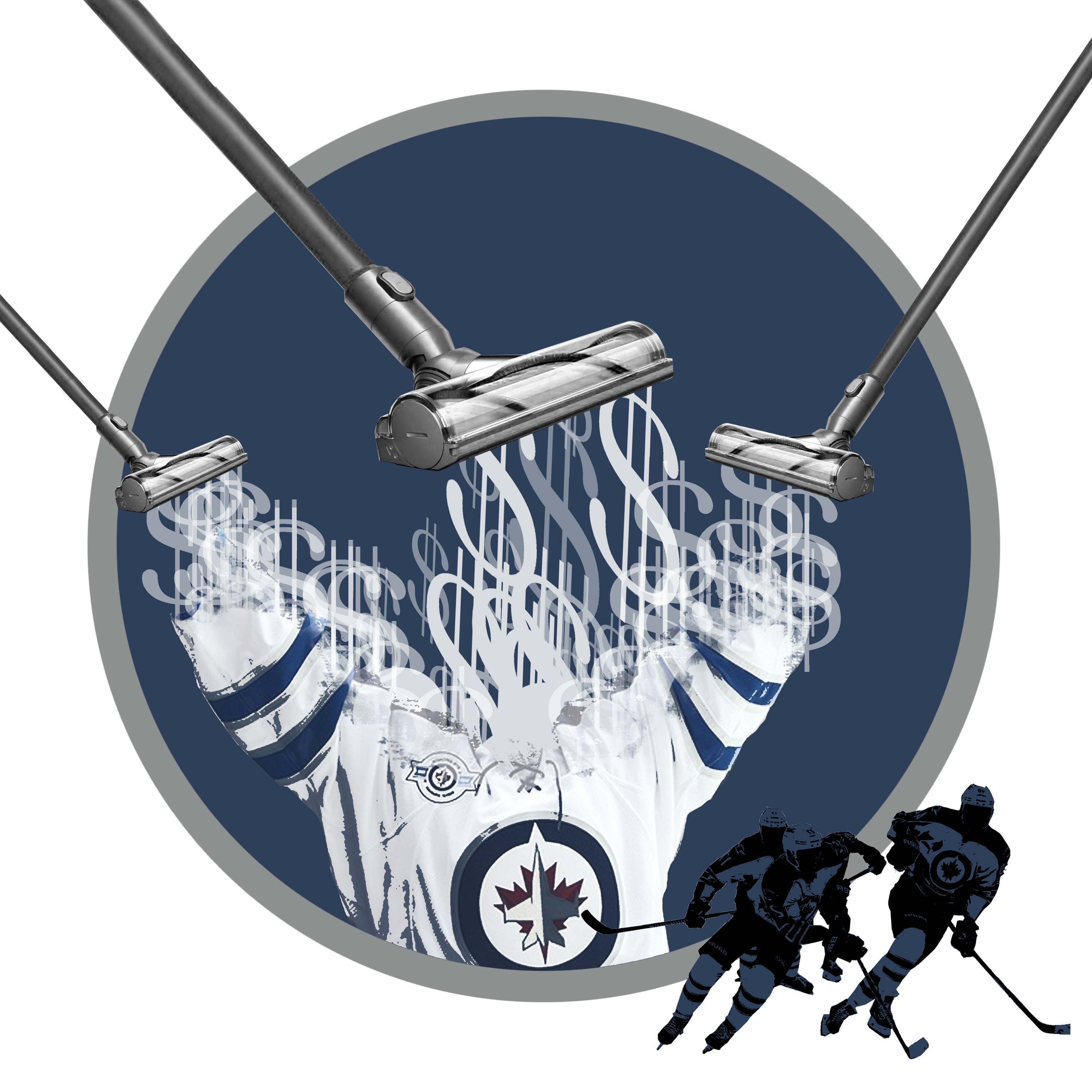Ukrainian U25 Men’s National Team forward Gleb Krivoshapkin distinctly remembers the day his family learned that the Russian army had invaded their city last February. They were prepared to defend themselves with what they had — his mother with knives from the kitchen, his father with an axe and Krivoshapkin with hockey sticks.
Krivoshapkin’s story is detailed in the TSN Original short documentary Still Here, which takes viewers behind the scenes during the recent “Hockey Can’t Stop Tour.”
The short doc recaps the team’s journey from attempting to practice for the 2023 FISU World University Games between air sirens in Ukraine to its four-stop hockey tour against the Universities of Saskatchewan, Calgary, Alberta and Manitoba.
The film starts with footage of practice derailed by air sirens and the team sheltering in place. In fact, goalie Savva Serdiuk laments that there are air sirens nearly every day “and because of that we don’t have practices.”
The doc then cuts to voice-overs of news broadcasts detailing the start of the Russian invasion on Feb. 24, 2022, paired with horrific scenes of bombings and destruction.
It is understandable that the doc’s focus is on the experience of the young hockey players in Ukraine and their wish to continue to play hockey for their country.
However, the documentary leaves out important details regarding how the U25 team got the chance to play the tour. The tour came about through communications between TSN play-by-play commentator Gord Miller, representatives of the Ice Hockey Federation of Ukraine and representatives of the National Hockey and U-Sports Leagues, including the U of M Bisons’ own head coach Mike Sirant.
The film does explain that the tour was designed to raise money for the reconstruction of hockey facilities in Ukraine and humanitarian aid for the country, but the details are very rudimentary in the doc and deserve a little more fleshing out.
What the documentary does best is showcase the horrific personal details of the players’ experiences while they are living their lives and trying to play hockey during the war — including defencemen Andrei Grigoriev’s story of a missile attack.
The film also handles the question “why play hockey during a war?” extremely well.
CEO of the Ice Hockey Federation of Ukraine Aleksandra Slatvytska, who accompanied the team on its tour, may answer the question best.
Slatvytska emphasized that sports are “important for every country” because they show “that a country still exists,” meaning the U25 team playing hockey in spite of the war symbolizes Ukraine’s right to exist.
At times, the doc seems to rely on images of missile strikes and destruction, which comes across as filler because of the film’s short run-time of just under 10 minutes.
While this filler could be due to the team being left to enjoy its time away from the war, the conflict is inescapable. The short doc captures the devastation the athletes feel when the beloved Druzhkivka arena back home in Ukraine’s Donetsk oblast (province) is destroyed by a missile attack on Jan. 2 in the middle of the tour.
This is perhaps the most relatable part of the doc. The audience doesn’t have to like sports or have played sports to understand the bitter loss of a home away from home being destroyed, something the Druzhkivka arena was to many players on the team.
The film ends with the sheer, heartwarming gratitude the players have for their fans — particularly the Winnipeg crowd — who came out in droves to cheer them on during their time in Canada.
Still Here is a commendable encapsulation of the past year of war in Ukraine, and the experiences of those in the middle of carnage they never asked to be a part of.
Still Here is streaming for free at tsn.ca and on TSN’s YouTube channel.





